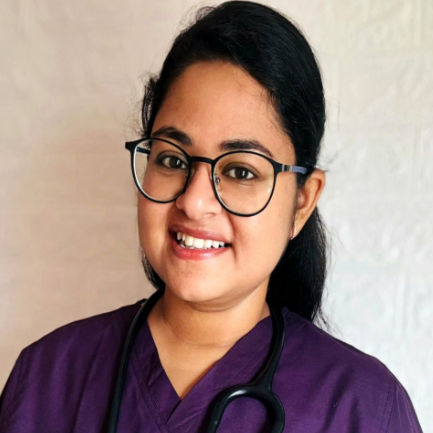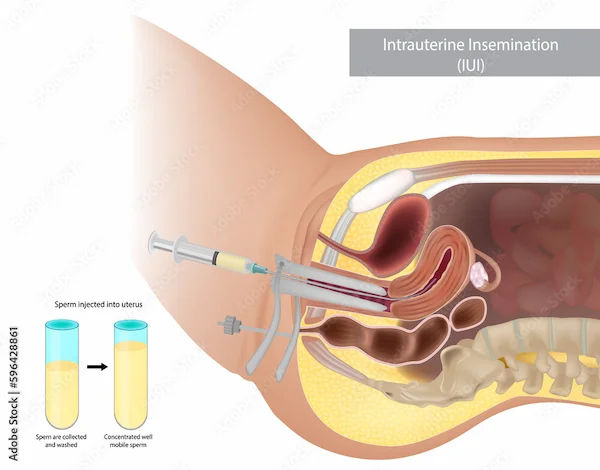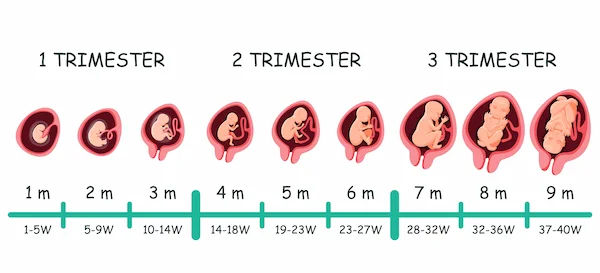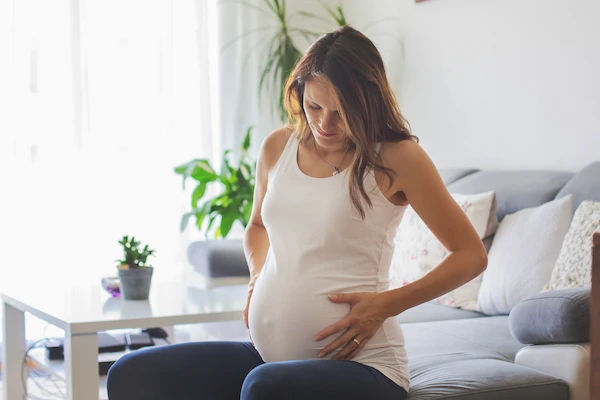Eclampsia Overview: Causes, Symptoms, and Treatment
Learn about eclampsia, a life-threatening pregnancy complication caused by preeclampsia. Understand its causes, risk factors, warning signs, effects on mother and baby, and available treatments.

.webp?tr=q-80,f-webp,w-350,dpr-2,c-at_max 700w)
Pregnancy is a beautiful journey, but it can sometimes come with complications that require special attention. One such serious condition is eclampsia, a rare but life-threatening complication of preeclampsia (a pregnancy-related high blood pressure disorder). If left untreated, it can harm both the mother and the baby.
In this article, we’ll discuss what eclampsia is, its causes, symptoms, and treatment options in simple terms. If you or someone you know is pregnant, this information can help you stay alert and take timely action.
What is Eclampsia?
Eclampsia is a severe condition where a pregnant woman with preeclampsia develops seizures or coma. It usually occurs after the 20th week of pregnancy, during labor, or even after delivery.
Preeclampsia is marked by high blood pressure (hypertension) and protein in the urine (proteinuria). When it progresses to seizures, it becomes eclampsia, which is a medical emergency.
What Causes Eclampsia?
The exact cause of eclampsia is not fully understood, but it is linked to problems with the placenta (the organ that nourishes the baby). Some possible factors include:
- Poor blood flow to the placenta – This can lead to high blood pressure and organ damage.
- Blood vessel abnormalities – Changes in blood vessels may restrict oxygen and nutrients to the baby.
- Genetic factors – A family history of preeclampsia or eclampsia increases the risk.
- Autoimmune disorders – Some immune system issues may contribute.
Risk Factors for Eclampsia
Some women are more likely to develop eclampsia if they have:
- First pregnancy (higher risk in first-time mothers)
- History of preeclampsia or eclampsia in previous pregnancies
- Chronic high blood pressure or kidney disease
- Multiple pregnancies (twins or triplets)
- Age (below 20 or above 35)
- Obesity or diabetes
- Family history of preeclampsia
Symptoms of Eclampsia
Eclampsia is a medical emergency. If you experience any of these symptoms, seek help immediately:
- Early Warning Signs (Preeclampsia Symptoms)
- Severe headaches (not relieved by painkillers)
- Blurred vision or flashing lights
- Swelling in hands, feet, or face (edema)
- Upper abdominal pain (usually on the right side)
- Sudden weight gain (due to fluid retention)
- Nausea or vomiting
- Difficulty breathing
Signs of Eclampsia (Emergency Symptoms)
Seizures (convulsions) – Uncontrolled shaking or loss of consciousness
- Confusion or agitation
- Loss of consciousness (coma)
- If you notice these symptoms, rush to the hospital immediately, as eclampsia can be fatal without prompt treatment.
How Does Eclampsia Affect Health?
Eclampsia can have serious consequences for both the mother and baby if not treated quickly.
For the Mother:
- Seizures can lead to brain damage or stroke.
- Organ damage (liver, kidneys, lungs).
- HELLP syndrome (a life-threatening liver and blood clotting disorder).
- Future risk of high blood pressure and heart disease.
For the Baby:
- Premature birth (delivery before 37 weeks).
- Low birth weight (due to poor placenta function).
- Placental abruption (placenta detaches early, causing heavy bleeding).
- Stillbirth (in severe cases).
How is Eclampsia Treated?
The only cure for eclampsia is delivering the baby, even if it’s premature. However, doctors will first stabilize the mother before delivery.
Emergency Treatment:
- Magnesium sulfate – Given through an IV to prevent seizures.
- Blood pressure medications – To lower dangerously high BP.
- Close monitoring – In the ICU if needed.
- Early delivery – If the condition is severe, doctors may induce labor or perform a C-section.
Consult a Gynaecologist for Personalised Advice
After Delivery:
- Blood pressure may remain high for a few weeks, requiring medication.
- Regular follow-ups are necessary to monitor recovery.
Can Eclampsia Be Prevented?
While eclampsia cannot always be prevented, early detection of preeclampsia can reduce risks. Here’s how:
- Regular prenatal check-ups – Blood pressure and urine tests help detect preeclampsia early.
- Healthy diet – Eat balanced meals with enough protein, vitamins, and minerals.
- Stay hydrated – Drink plenty of water.
- Reduce salt intake – Excess salt can increase blood pressure.
- Light exercise – Walking or prenatal yoga helps circulation.
- Rest and manage stress – Avoid overexertion.
If you have risk factors, your doctor may recommend low-dose aspirin to reduce preeclampsia risk.
When to See a Doctor?
If you are pregnant and experience:
- Severe headaches or vision changes
- Sudden swelling in hands/face
- Severe abdominal pain
- Seizures or confusion
- Do not wait—seek emergency care immediately.
Book a Consultation with Apollo 24|7
If you are pregnant and concerned about preeclampsia or eclampsia, Apollo 24|7 offers expert consultations and tests to monitor your health. Early detection can save lives!
Call now or book an appointment online for personalized care.
Final Thoughts
Eclampsia is rare but serious. The key is early detection and immediate treatment. If you’re pregnant, attend all prenatal visits, monitor your symptoms, and don’t ignore warning signs.
With proper care, most women recover well after treatment.
Consult a Gynaecologist for Personalised Advice
Consult a Gynaecologist for Personalised Advice
Dr. K Anusha
Obstetrician and Gynaecologist
4 Years • MBBS, DGO
Yemmiganur
SRINIVASAA HOSPITAL, Yemmiganur

Dr. Sanjan Das
Obstetrician and Gynaecologist
15 Years • MBBS,MS
Bengaluru
Apollo Clinic, Sarjapur Road, Bengaluru

Dr. Sreeparna Roy
Obstetrician and Gynaecologist
8 Years • MBBS , MS (OBSTETRICS & GYNAECOLOGY), Fellowship in Infertility, Endoscopy & Ultrasonography), Fellowship in Laparoscopy & Hysteroscopy,DRM
Barasat
Diab-Eat-Ease, Barasat

Dr. Rituparna De
Obstetrician and Gynaecologist
7 Years • MBBS, MS (Obstetrics & Gynaecology)
Kolkata
MCR SUPER SPECIALITY POLY CLINIC & PATHOLOGY, Kolkata

Dr. Saheli Kapat
Obstetrician and Gynaecologist
11 Years • MBBS, DNB Obstetrics & Gynaecology,FMAS(Fellowship in Minimal access surgery)
Kolkata
MCR SUPER SPECIALITY POLY CLINIC & PATHOLOGY, Kolkata
Consult a Gynaecologist for Personalised Advice
Dr. K Anusha
Obstetrician and Gynaecologist
4 Years • MBBS, DGO
Yemmiganur
SRINIVASAA HOSPITAL, Yemmiganur

Dr. Sanjan Das
Obstetrician and Gynaecologist
15 Years • MBBS,MS
Bengaluru
Apollo Clinic, Sarjapur Road, Bengaluru

Dr. Sreeparna Roy
Obstetrician and Gynaecologist
8 Years • MBBS , MS (OBSTETRICS & GYNAECOLOGY), Fellowship in Infertility, Endoscopy & Ultrasonography), Fellowship in Laparoscopy & Hysteroscopy,DRM
Barasat
Diab-Eat-Ease, Barasat

Dr. Rituparna De
Obstetrician and Gynaecologist
7 Years • MBBS, MS (Obstetrics & Gynaecology)
Kolkata
MCR SUPER SPECIALITY POLY CLINIC & PATHOLOGY, Kolkata

Dr. Saheli Kapat
Obstetrician and Gynaecologist
11 Years • MBBS, DNB Obstetrics & Gynaecology,FMAS(Fellowship in Minimal access surgery)
Kolkata
MCR SUPER SPECIALITY POLY CLINIC & PATHOLOGY, Kolkata




